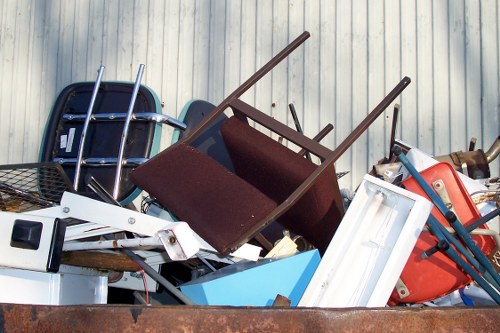Effective Waste Removal in Temples: Strategies and Best Practices

Introduction
Temples play a pivotal role in the cultural and spiritual lives of communities. As places of worship and community gathering, they naturally generate waste from daily activities, festivals, and special events. Proper waste removal in temples is essential not only for maintaining hygiene but also for preserving the sanctity of these sacred spaces. Effective waste management ensures that temples remain clean, sustainable, and welcoming for all devotees.
In recent years, there has been a growing emphasis on sustainable practices within religious institutions. Temples, being influential community centers, have a unique opportunity to lead by example in adopting eco-friendly waste management systems. This article explores the importance of waste removal in temples, the challenges faced, and the best practices to implement effective waste management strategies.
Understanding the dynamics of waste generation in temples is the first step towards developing comprehensive removal strategies. From daily offerings to large-scale celebrations, the variety and volume of waste can be significant. By addressing these aspects systematically, temples can minimize their environmental footprint and promote a culture of cleanliness and responsibility.

The Importance of Waste Removal in Temples
Proper waste removal is crucial in maintaining the aesthetic and spiritual integrity of temples. Accumulated waste can lead to unpleasant odors, attract pests, and create unsanitary conditions, which are detrimental to both the environment and the health of visitors. Moreover, temples often house valuable artifacts and structures that can be damaged by improper waste disposal.
Beyond the immediate health and safety concerns, effective waste management aligns with the ecological principles often espoused in religious teachings. Many faiths advocate for the protection of nature and the responsible use of resources. By implementing sustainable waste removal practices, temples can embody these values and inspire their communities to follow suit.
Furthermore, temples that prioritize cleanliness and sustainability often experience increased patronage and community support. Visitors are more likely to frequent a well-maintained and environmentally conscious place of worship, fostering a positive reputation and encouraging ongoing efforts towards waste reduction.

Challenges Faced in Temple Waste Management
Types of Waste Generated
Temples generate various types of waste, including organic waste from food offerings, plastic waste from packaging, electronic waste from lighting and sound systems, and hazardous waste from maintenance activities. Each type requires different handling and disposal methods to ensure safe and effective removal.
The diversity of waste presents logistical challenges in segregation, storage, and transportation. For instance, organic waste needs to be composted or processed to prevent decomposition issues, while electronic waste must be disposed of responsibly to avoid environmental contamination.
Logistical Constraints
Many temples are located in densely populated or urban areas, where space for waste storage and disposal is limited. Additionally, the influx of visitors during festivals can overwhelm existing waste management systems, leading to inefficiencies and increased environmental impact.
Resource limitations, such as inadequate funding or lack of trained personnel, further complicate the implementation of effective waste removal strategies. Without the necessary infrastructure and expertise, temples may struggle to maintain cleanliness and adhere to environmental regulations.

Effective Waste Removal Strategies
Segregation and Recycling
One of the most effective strategies for waste removal in temples is the segregation of waste at the source. By separating organic, recyclable, and non-recyclable materials, temples can streamline the disposal process and enhance recycling efforts. Implementing clearly labeled bins and educating staff and visitors on proper segregation practices are essential steps in this process.
Recycling not only reduces the volume of waste sent to landfills but also promotes the reuse of materials, contributing to environmental sustainability. Partnering with local recycling facilities can facilitate the efficient processing of recyclable waste, ensuring that materials are handled responsibly.
Use of Eco-friendly Materials
Adopting eco-friendly materials is another critical component of sustainable waste management in temples. Using biodegradable utensils, reusable containers, and eco-friendly packaging can significantly reduce the amount of waste generated. Additionally, incorporating sustainable practices in daily operations, such as energy-efficient lighting and water conservation, can complement waste removal efforts.
Furthermore, promoting the use of natural and sustainable products aligns with the environmental values often promoted in religious teachings, reinforcing the temple's commitment to ecological stewardship.

Implementing a Waste Removal Plan in Temples
Developing a comprehensive waste removal plan is essential for temples to effectively manage their waste. This plan should include assessing the types and volumes of waste generated, identifying appropriate disposal methods, and establishing protocols for waste segregation and collection.
Additionally, training staff and volunteers on waste management practices is crucial to ensure consistency and compliance with established guidelines. Regular monitoring and evaluation of the waste removal system can help identify areas for improvement and ensure that the plan remains effective over time.
Community Involvement
Engaging the community in waste management initiatives can enhance the effectiveness of waste removal strategies in temples. Encouraging devotees to participate in cleanliness drives, recycling programs, and educational workshops fosters a collective sense of responsibility and ownership.
Moreover, collaborating with local authorities and environmental organizations can provide additional resources and support, facilitating the implementation of sustainable waste management practices.
Contact us today to learn more about how your temple can adopt effective waste removal strategies and contribute to a cleaner, more sustainable environment.
